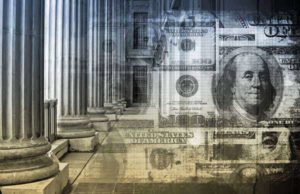 The pension law of the United States can refer to different features through which the pension service provided to citizens of the country. In general, a pension is a plan for payment to continue to employees after they have ceased their active service for the company, government agency, or other type of organization at which they were employed.
The pension law of the United States can refer to different features through which the pension service provided to citizens of the country. In general, a pension is a plan for payment to continue to employees after they have ceased their active service for the company, government agency, or other type of organization at which they were employed.
The pension service provided to a one-time employee can, in this regard, differ according to whether it is provided on the basis of governmental or private job types. As a type of financial compensation provided for the conclusion of a period of service, the pension service can be differentiated from severance pay, which is provided on one occasion, as opposed to the regular schedule through which individual sums will paid into a pension.
In the United States, the primary, existing legal framework for the pension service for people privately employed is provided by the source of the Employee Retirement Income Security Act, which was passed into effect in 1974. In this regard, concern had previously been raised by American political activist following the discovery that pension service plans for employees in private industry were in some cases not being financed adequately.
The provision of a pension service is not imposed by the law as a necessity for employers to offer. Rather, the way in which a pension can be provided to employees is allowed for by the legislation. Further legislative changes to pension service were enacted with the 1986 COBRA and 1996 HIPAA acts.





































